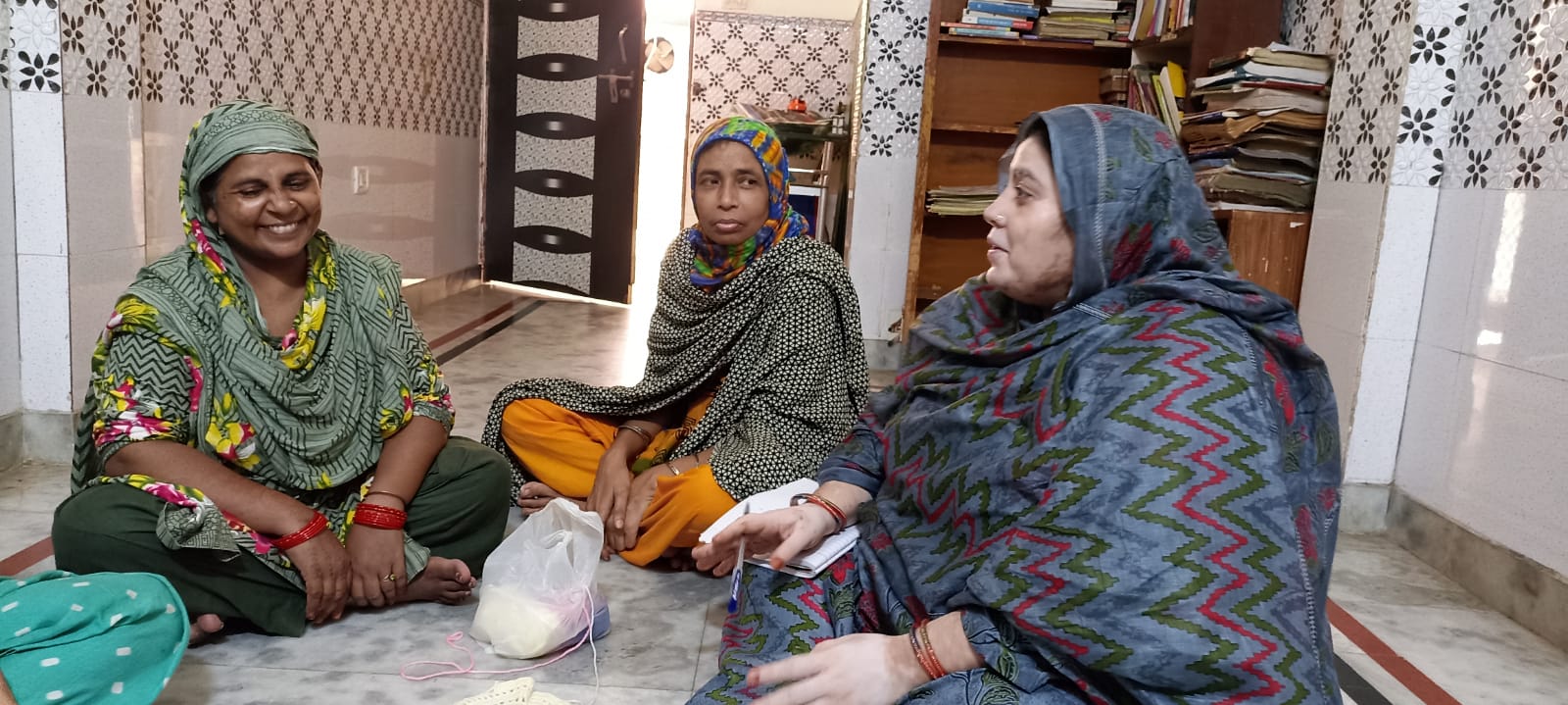IMPORTANCE OF STORYTELLING AND CREATIVE WRITING
In today’s world where text speak and emojis are so common, reading books and creative writing help to develop skills that are being forgotten. They trigger intellectual stimulation and imagination. Numerous benefits can be attained by encouraging them to read and write from a young age. It gives them confidence at an early age and molds them into powerful adults who can communicate their thoughts and feelings very clearly.
Akbar, who grew up in Trilokpuri and runs Foundation for Equal Citizenship(FFEC)’s learning center, Kadam observed, “most kids come to our center from Ambedkar camp and are first generation students from underprivileged, often migrant families. Hence, it isn’t easy for them to have access to schools, colleges or any kind of educational materials. This makes it difficult for them to gain reading and writing skills which are critical for a growing child in order to become literate.”
Each day kids experience new events. They learn new words that help build their vocabulary and these new experiences help them to develop a creative and curious mind. These new experiences help the child develop the ideas into stories or creative writing.
“I was part of the Kahani program where I had to read out stories to around 10-12 children every Tuesday and Friday. The kids were very cooperative and friendly. My lessons were in dual-language mode, that is, the stories were in English (Ruskin Bond’s short stories) and I would try my best to explain and interpret them in Hindi as well. Questions were always encouraged in class and at the end of every class, I tried to use about 3-4 words that would be difficult for the kids to understand. I would write down the meanings for those words as it would help increase and improve their vocabulary”, says Jugtshen Tk Lama who interned at FFEC this summer.

Although FFEC’s focus has been more on improving reading skills so far through its Kahani project where young volunteers or interns conduct sessions with kids, it plans to incorporate creative writing going forward. Creative writing can help a child to communicate effectively in the tech savvy world. Writing helps a child to demonstrate its creative side, increases their ability to focus and improves their dedication and commitment.
Creative writing helps develop creative thoughts using imagination, suggesting alternatives, and broadening their thought process and problem-solving abilities. It is all about using one’s imagination and creativity to express ideas and thoughts in a way which is personal to oneself. In simple words, it’s about adding your own ‘flair’ to writing. It is a form of writing that goes beyond the traditional realms of normal, professional, academic or technical forms of writing which encompasses many different genres and styles across a whole range of fields of both fictional and non-fiction writing – prose, poetry, storytelling, playwriting, journalistic, and more.
It helps children channel their emotions and teaches them how to handle a situation. It enables them to express how they feel and understand how others feel too. If a child is unable to communicate effectively in childhood, the problem may become worse as they grow older. Exchanging ideas with others allows the child to develop their storyline and collaborate with others.
It also allows the child to express their opinions, raise their voice and also improves their logical skills. These are the fundamental skills that the child can apply in other areas of learning and succeed and it helps strengthen their self-confidence.
FFEC looks forward to more interns and volunteers who can help these kids improve their reading and writing skills in interesting ways!
